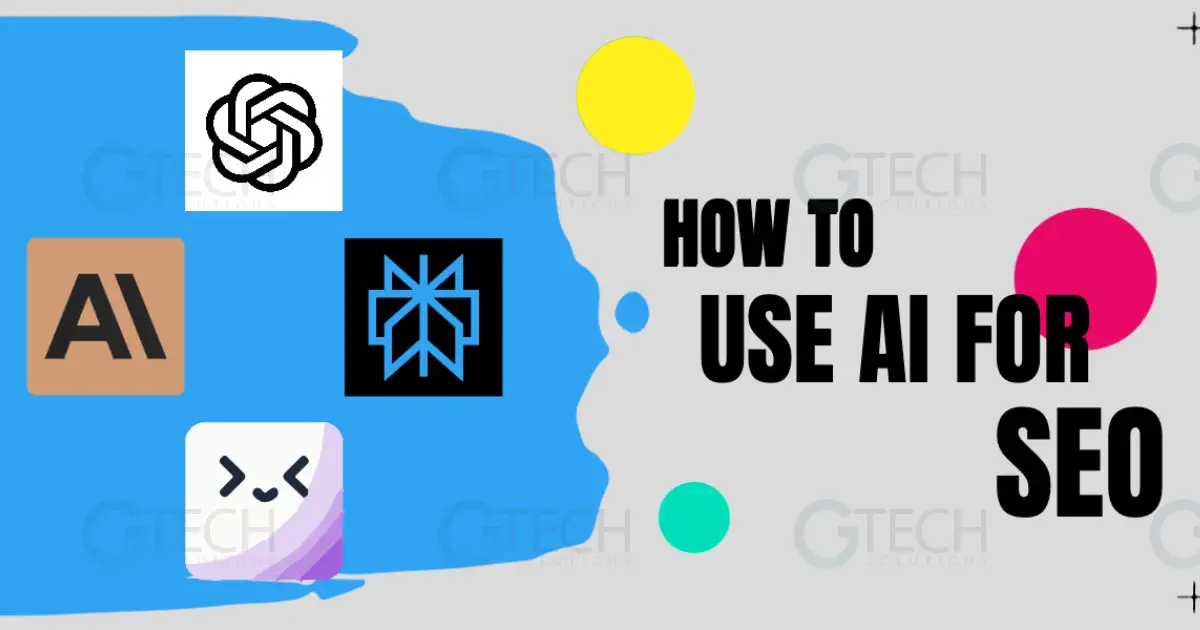The 60% Problem — How AI Search Draining Traffic
Search engines have long been the cornerstone of the internet, acting as gateways for users to find content and businesses to attract organic traffic. For years, website owners, publishers, and digital marketers have invested significant effort into mastering Search Engine Optimisation (SEO) to improve their visibility in Google search results. However, the emergence of AI-powered search technologies, such as OpenAI’s ChatGPT and Google’s Gemini, has disrupted the traditional search experience. As AI-driven answers continue to grow, many websites are experiencing a decline in traffic, particularly through zero-click searches and AI-generated answers that push users away from organic results. In this article, we’ll dive into how AI search is draining your traffic and explore strategies that businesses can adopt to adapt to this new search paradigm.
The Rise of AI Search and Its Impact on Organic Traffic
AI search technologies are rapidly transforming the way users interact with search engines. Platforms like ChatGPT and Google’s Gemini provide users with instant, concise answers to their queries, bypassing the need to click through to traditional websites. This shift is what experts refer to as the “60% problem”—AI-generated answers are pulling traffic away from websites by directly providing the information users are looking for without requiring them to visit a search result page.
AI-powered search assistants, such as ChatGPT, have made it possible to generate answers to a wide variety of user queries, from factual questions to product recommendations, without the need for users to sift through multiple search results. This development has significantly reduced the visibility of organic content, leaving businesses and content creators to grapple with the consequences of reduced traffic. According to a study by Dr. Anya Sharma, approximately 60% of users now rely on AI-generated answers directly on the search results page, leaving traditional search results with less click-through traffic.
In this new reality, search engines like Google must adapt to stay relevant, incorporating more AI features into their results pages. As a result, businesses and publishers need to rethink their strategies for attracting organic traffic, adjusting to the shift towards AI-generated content and responses.
Zero-Click Searches: A Growing Threat to Publishers
Zero-click searches, where users find the information they need directly on the search results page without clicking through to any website, are on the rise. Google’s “featured snippets” and AI-generated answers are a major contributor to this trend. These zero-click searches are draining website traffic by providing users with quick answers and overviews without the need for them to visit a site. The rise of AI search tools like ChatGPT has made it even easier for users to find direct answers to their queries without leaving the search engine’s interface.
For publishers, the implications are severe. Historically, publishers relied on search engines to drive organic traffic to their websites, boosting ad revenue and brand visibility. However, with the advent of AI-driven changes in search, traditional publishers are seeing a significant drop in their search traffic. With answers being pulled directly from articles, blogs, or news sources and displayed in AI-generated overviews, the need for users to visit individual sites has diminished. This is particularly concerning for businesses and digital marketers who rely on search engine traffic to drive their revenue and audience engagement.
The shift to zero-click searches is a challenge for digital marketing strategies. Without users visiting websites, businesses face a loss in their ability to drive conversions, sales, and subscriptions. Publishers who previously relied on organic traffic to generate revenue from ads are also seeing a decline in their earnings as AI-generated content reduces the number of clicks through to their websites.

The Role of AI-Generated Content and Accuracy Issues
While AI-generated content offers convenience, it also brings a host of issues related to accuracy and reliability. Generative models, like those behind ChatGPT, are capable of providing quick responses to a wide range of queries, but the answers are not always accurate or well-sourced. In fact, a study has shown that AI-generated answers can be up to 60% inaccurate, particularly when it comes to complex or nuanced topics.
This inaccuracy poses a problem for both users and businesses. Users who rely on AI-generated answers may find themselves misinformed, leading to a poor user experience. On the other hand, businesses that rely on AI-powered search engines to drive traffic to their content may be negatively impacted if the AI does not accurately represent their website’s content or provides incomplete answers. The rise of AI-generated answers has made it more challenging for businesses to maintain a strong presence in search results, especially when their content is used inaccurately in AI-powered overviews.
While tools like ChatGPT can provide fast answers, they lack the deep understanding and expertise that human-created content brings. This creates an opportunity for businesses to focus on creating high-quality, accurate, and authoritative content that will stand out in search engines, even as AI-driven answers continue to dominate.
The Changing Search Results Page: A New Era for SEO
As search engines continue to evolve, the layout and functionality of search results pages are changing. Traditional search results, where users scroll through multiple links to find relevant content, are being replaced by AI-generated summaries, answers, and knowledge panels. Google’s search results page is now dominated by features such as featured snippets, knowledge graphs, and “People Also Ask” sections, which display quick answers and information directly on the results page.
This shift is not just about providing quicker answers to users; it also represents a fundamental change in the way SEO is approached. SEO strategies that once focused primarily on driving users to click through to a website are now being forced to evolve. In this new era, businesses and digital marketers must focus on optimising their content for AI-powered search results and enhancing their website’s presence in snippets and knowledge panels.
SEO now requires a multi-faceted approach that includes optimising for AI-driven search results and ensuring that content is highly relevant and authoritative. As more AI-generated answers fill the search results page, businesses must adopt new strategies to maintain visibility. These strategies include optimising for featured snippets, using structured data, and ensuring that their content is highly accurate and easy for AI to process.
Adapting to the New Reality: SEO Strategies for AI Search
To counteract the drain on traffic caused by AI-powered search engines, businesses must adapt their SEO strategies to the new reality. One key strategy is to optimise content for zero-click searches by focusing on creating high-quality, informative content that can be featured as a snippet or knowledge panel. Content strategies that prioritise user experience and provide clear, concise answers to common queries are more likely to be featured in AI-powered search results.
Another effective strategy is to focus on long-tail keywords and niche topics that are less likely to be directly answered by AI-generated content. By targeting specific queries and providing in-depth, authoritative content on these topics, businesses can differentiate themselves from generic AI answers and continue to attract organic traffic.
Additionally, integrating AI-powered tools into SEO workflows can help businesses stay ahead of the competition. Tools like ChatGPT can assist with content creation, keyword research, and even user experience improvements, allowing businesses to leverage AI in a way that complements their SEO strategies.
Finally, businesses must invest in content diversification. Relying solely on AI-generated answers is not enough to maintain long-term success. Creating unique content formats, such as videos, infographics, and interactive features, can help businesses stand out in the crowded search results page and attract more traffic.

Embracing AI in SEO: The Future of Search
As AI continues to influence the digital landscape, businesses must embrace AI-powered tools and strategies to remain competitive. AI has already changed the way users interact with search engines, and this trend is only going to accelerate. In the future, AI-driven tools will become even more integrated into SEO strategies, allowing businesses to optimise their content in real-time and respond to changes in user behavior and search engine algorithms more efficiently.
For SEO professionals, staying ahead of AI-powered changes is critical. Understanding how AI models like ChatGPT work, how they influence search results, and how to optimise for AI-generated content will be essential skills for the future. Businesses that adopt these technologies early on will be better positioned to maintain their traffic and continue to thrive in an increasingly AI-driven world.
AI in SEO Services: How G-Tech Solutions Can Help
At G-Tech Solutions, we provide cutting-edge AI in SEO services to businesses around the world. Our team of experts leverages advanced AI technologies to help optimise your content, improve your search engine rankings, and enhance your overall digital marketing strategy. From AI-driven content creation to SEO strategies that cater to the new reality of AI search, we are here to help you navigate the ever-changing search landscape.
If you’re looking to boost your organic traffic and stay ahead of the curve in the AI-driven search world, G-Tech Solutions is your trusted partner. Contact us today to learn more about how our AI-powered SEO services can help your business succeed in the new era of search engines.



